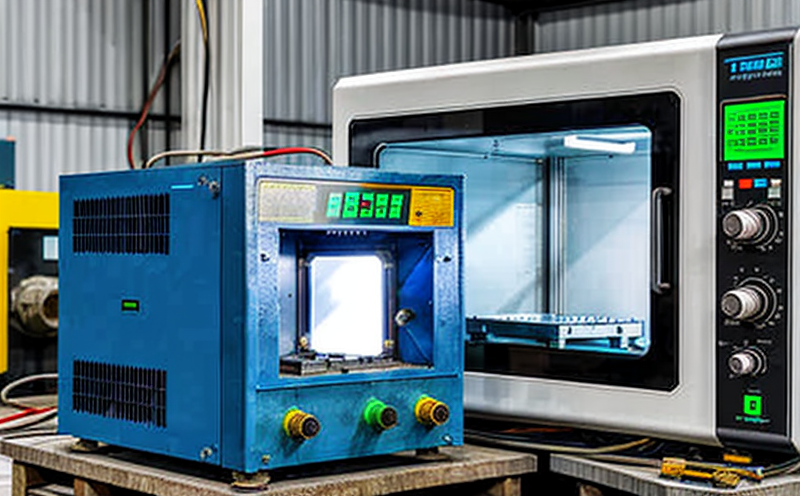Thermal shock testing of electronic components
The Importance of Thermal Shock Testing for Electronic Components Ensuring Reliability and Performance
In todays fast-paced world of electronics, reliability and performance are crucial factors that determine the success of a product. Electronic components are an integral part of modern devices, from smartphones to medical equipment, and their failure can have significant consequences on the overall systems functionality and safety. One critical aspect of ensuring electronic component reliability is thermal shock testing. This laboratory service, provided by Eurolab, helps manufacturers evaluate their products ability to withstand extreme temperature fluctuations.
What is Thermal Shock Testing?
Thermal shock testing involves subjecting electronic components or assemblies to sudden and significant changes in temperature, either heating or cooling. This process simulates the real-world conditions that these components may encounter during operation, such as exposure to environmental extremes (e.g., high temperatures in a desert climate) or internal heat generation (e.g., from a faulty component). The primary goal of thermal shock testing is to assess the reliability and performance of electronic components under conditions that could cause them to fail.
Why is Thermal Shock Testing Essential for Businesses?
Businesses that rely on electronic components, such as manufacturers, designers, and quality control teams, must consider the importance of thermal shock testing in ensuring product reliability. Here are some compelling reasons why
Reduce Costs By identifying potential failures during the testing process, companies can avoid costly rework, redesigns, or even product recalls.
Enhance Customer Satisfaction Thermal shock testing helps ensure that products meet performance and safety expectations, leading to increased customer satisfaction and loyalty.
Compliance with Regulations Many industries require electronic components to pass thermal shock testing as a condition for certification or regulatory compliance (e.g., automotive, aerospace).
Increase Product Lifespan By understanding how components perform under extreme temperature conditions, manufacturers can optimize product design, reduce degradation over time, and extend the lifespan of their products.
Key Benefits of Thermal Shock Testing
The advantages of thermal shock testing are numerous
Identify Component Limitations Understand how components respond to extreme temperatures, enabling informed decisions on component selection and product design.
Improve Product Reliability Assess a products ability to withstand temperature fluctuations, ensuring it operates as intended in real-world conditions.
Reduce Failure Rates Identify potential failures during testing, allowing for corrective actions before products are released to market.
Enhance Quality Control Ensure that quality control procedures are effective by subjecting components or assemblies to thermal shock testing.
Thermal Shock Testing A Critical Component of Your Business
Eurolabs laboratory service provides a comprehensive evaluation of electronic component reliability under extreme temperature conditions. Our state-of-the-art facilities and expert technicians ensure accurate, reliable results. By choosing Eurolab for your thermal shock testing needs, you can
Gain Confidence in Your Products Ensure that your products meet performance, safety, and regulatory requirements.
Reduce Development Time Streamline the design process by identifying potential issues early on.
Enhance Competitiveness Distinguish your business from competitors by demonstrating a commitment to product reliability.
Frequently Asked Questions about Thermal Shock Testing
Q What is the typical temperature range used for thermal shock testing?
A The temperature range varies depending on the specific application, but common ranges include -40C to 125C or 150C.
Q How long does a typical thermal shock test take?
A Test duration depends on factors like sample size, temperature requirements, and desired testing frequency. However, most tests can be completed within hours or days.
Q What types of electronic components are suitable for thermal shock testing?
A All types of electronic components can benefit from thermal shock testing, including ICs, diodes, transistors, capacitors, inductors, resistors, and assemblies.
In conclusion, thermal shock testing is an essential laboratory service that ensures the reliability and performance of electronic components. By subjecting components to extreme temperature fluctuations, Eurolab helps manufacturers identify potential failures, reduce costs, enhance customer satisfaction, comply with regulations, and increase product lifespan.




